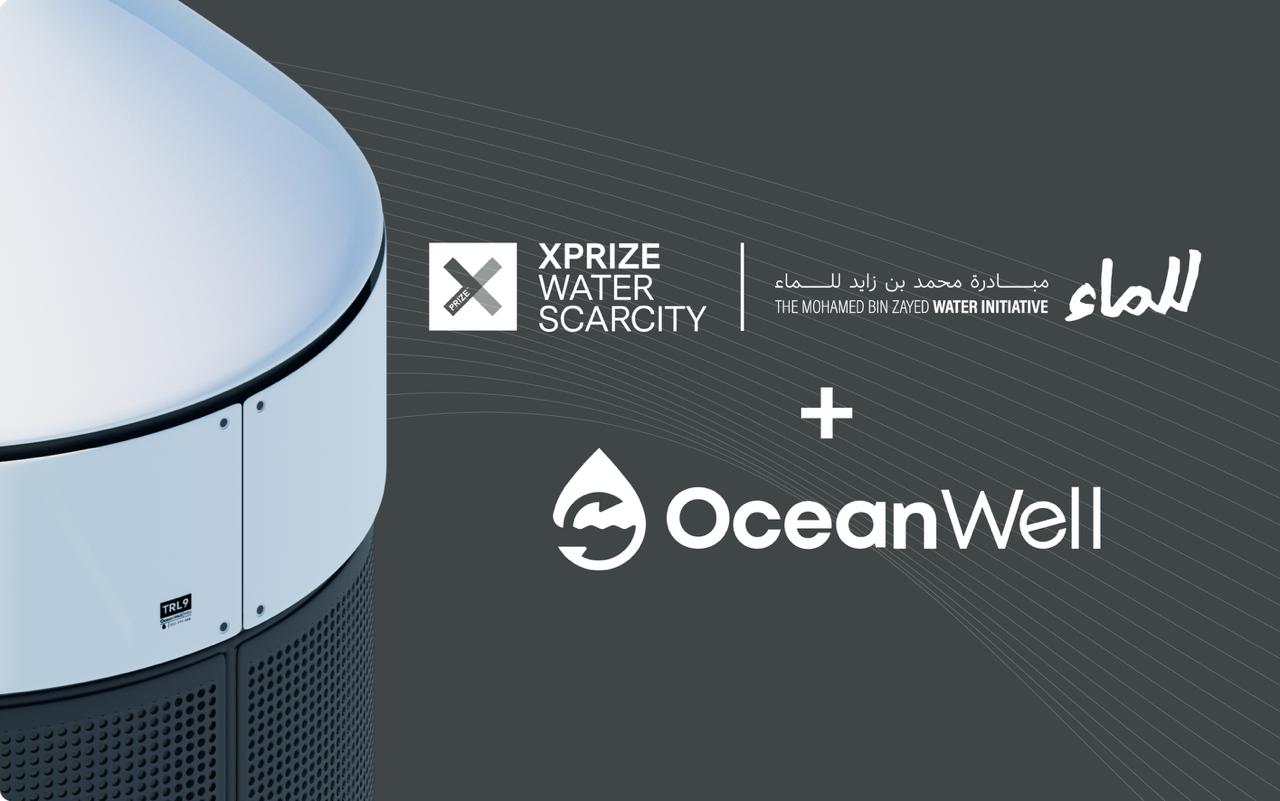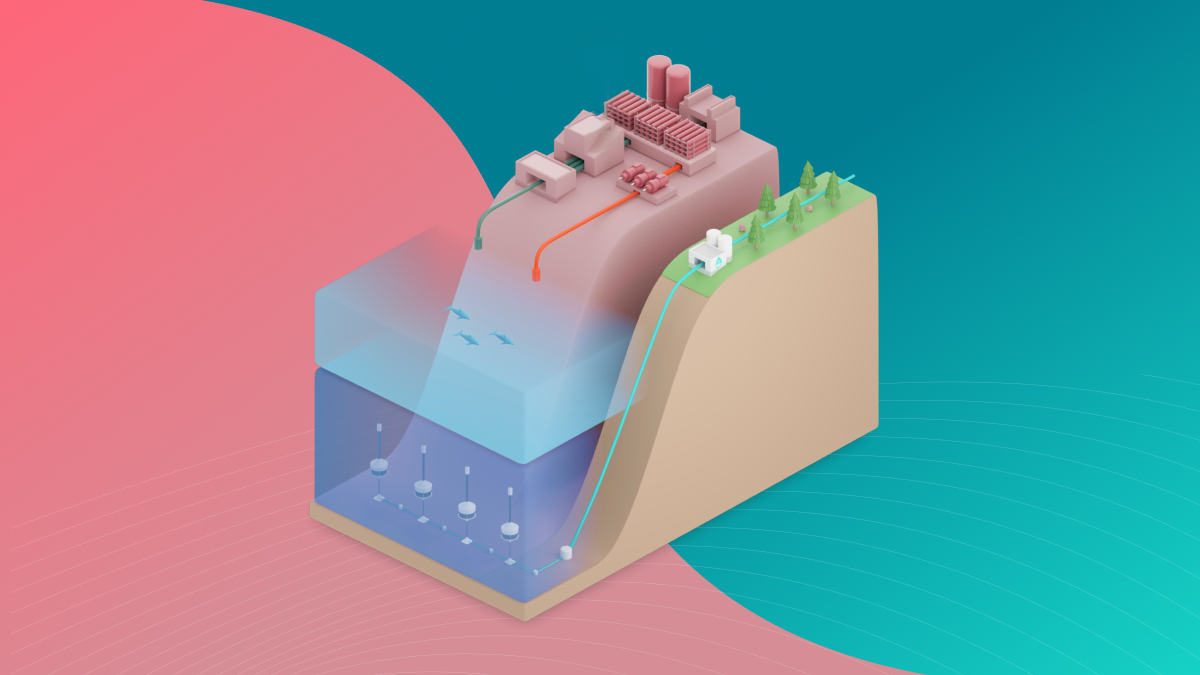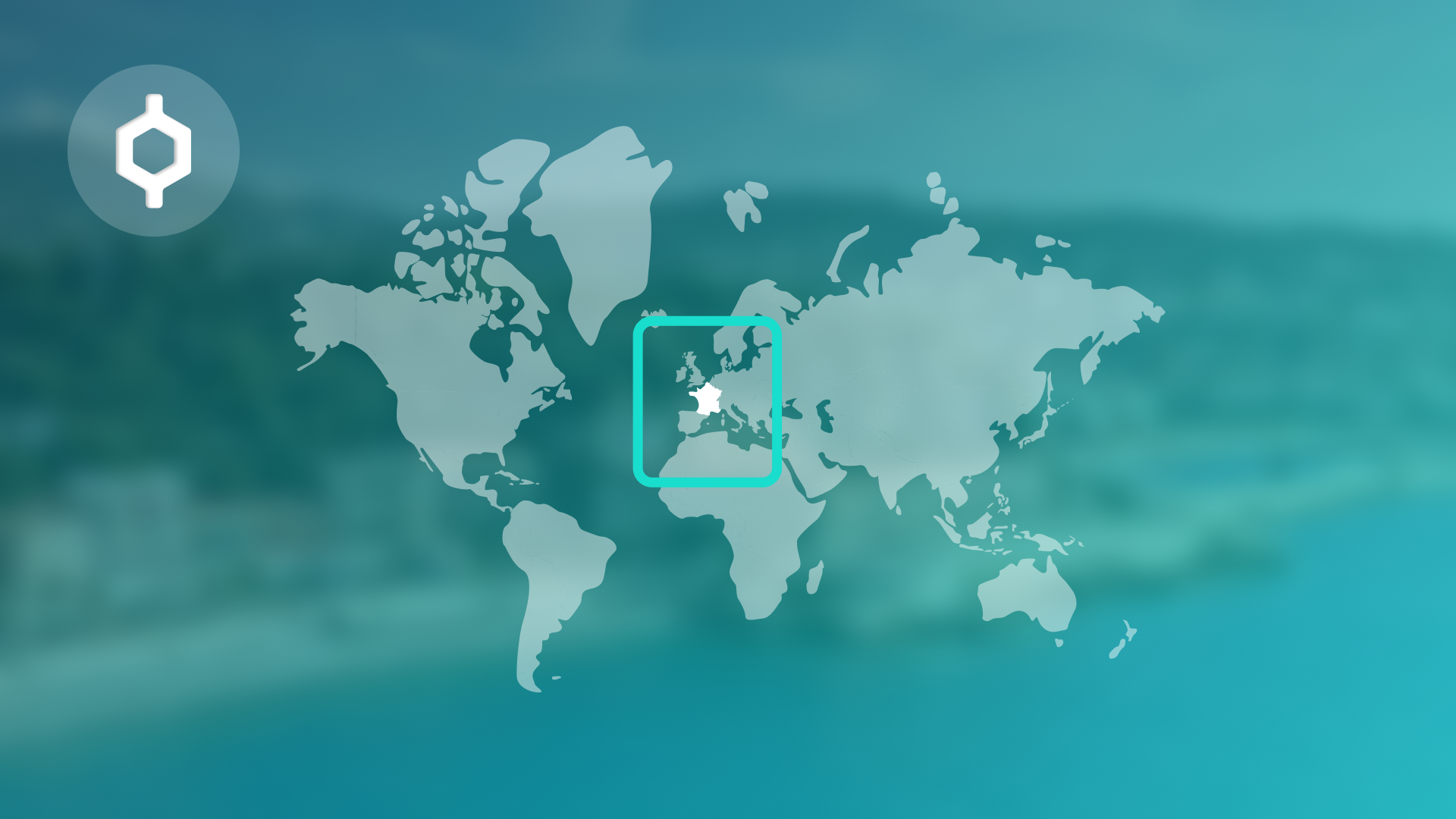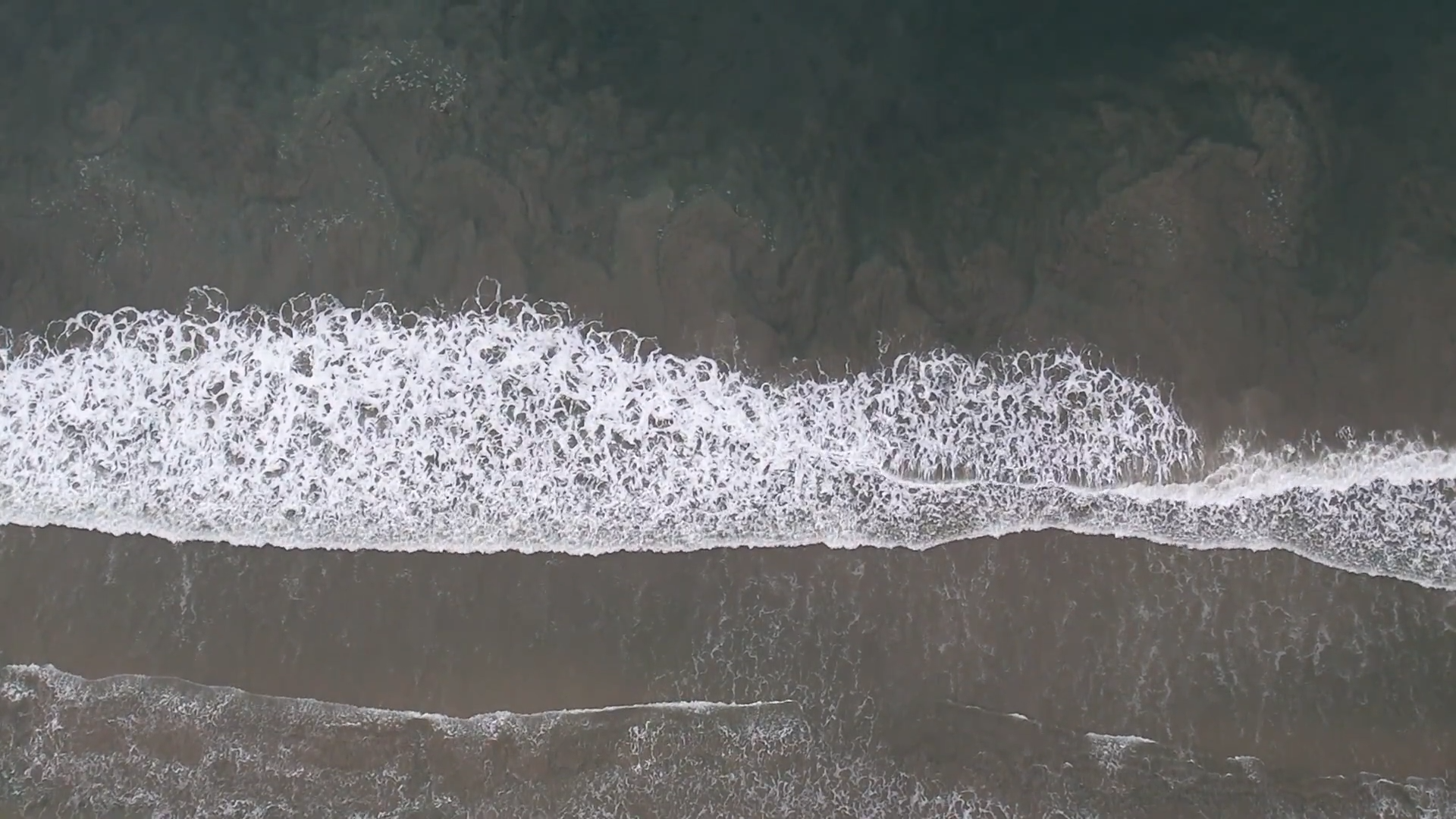Arizona and Nevada are a couple of hundred miles inland from the Pacific, which begs the question, wouldn’t you need a big, expensive pipeline to convey water produced from the Pacific inland? It would be a major undertaking, costing billions of dollars.
OceanWell offers a much more efficient approach to boosting water availability within each of those states, within a much shorter timeframe, at a fraction of the cost and with no environmental downsides.
We’re working with stakeholders to provide augmentation water to AZ and NV through a “water exchange” with Southern California.
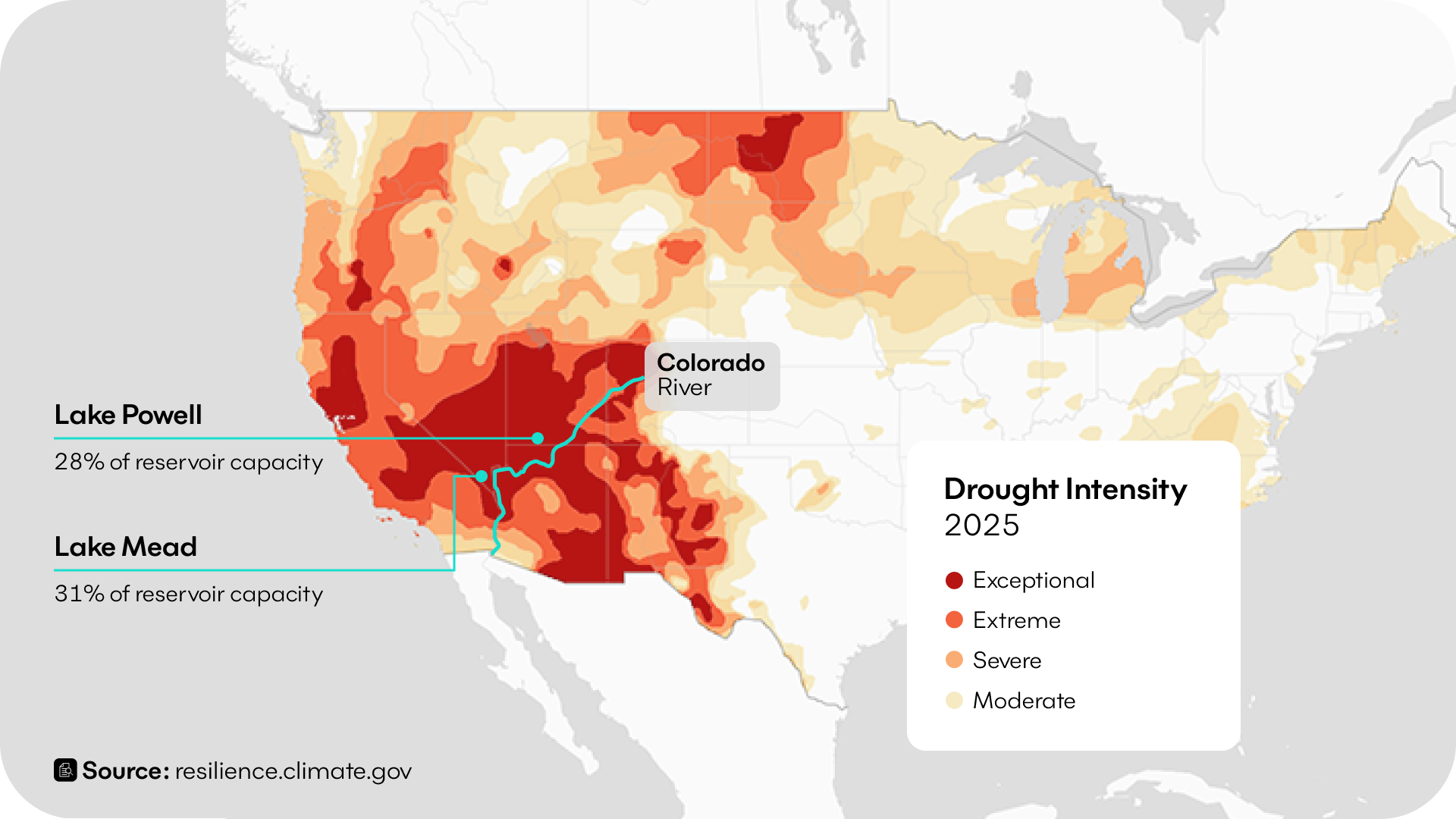
What is a “Water Exchange”?
A Water Exchange is OceanWell’s preferred approach to supplying water to customers inland. It works when multiple users receive their water from a common source.
The Lower Basin States in the Colorado River Basin, Arizona, Nevada, and California, all share the Colorado River with four Upper Basin States, Colorado, Wyoming, Utah, and New Mexico. Each state has an apportionment of water based on the Colorado River Compact, negotiated more than a century ago in 1922. Unfortunately, supply is declining for all the states in the Colorado River Basin due to an historic drought fueled by climate change. California is the downstream U.S. state on the river system, meaning it depends on water that has already passed through other states.
This is a classic zero-sum game, where one state getting more water means another gets less. Since water is the lifeblood of all the states, it is essentially a negotiation leading to inevitable conflict. This conflict can be lessened only if “augmentation” water is added to the system.
Now if Southern California were to access a new, reliable water supply from the Pacific, one which could sustainably meet a portion of its local demands, that would do two things:
1. It would reduce California’s dependence on the Colorado River.
2. That would, in turn, free up water for use in other basin states, notably in Arizona and Nevada.
This would not only benefit all three states, it would but it would also be a more cost-effective solution to shortfalls on the Colorado River.
How does this work in practice?
OceanWell can provide water to Arizona and Nevada by supplying water directly to the Metropolitan Water District of Southern California, which has an apportionment of Colorado River water dating back to the 1922 Compact. Because of this reliable source of new supply from the Pacific Ocean, Metropolitan could then leave water in Lake Mead and Lake Havasu for delivery to Nevada and Arizona, respectively.
California loses nothing (and gains a purer, more reliable water source) while Arizona and Nevada benefit from more water from the river. This is not a new concept. California, Arizona, and Nevada are already exploring ways to exchange water developed in California through the large-scale “Pure Water” recycling project in Southern California.
Does it mean water will cost more?
This is not a free ride for the upstream states, though. The cost for the new Pacific source of course would be funded by the new water recipients. The new users pay for the water production and the exchange process.

Why This Matters for Arizona and Nevada
- Reliable Supply: With its emerging plans for harvesting water from the Pacific Ocean in California, OceanWell can supply large amounts of “augmentation” water to prevent shortages of Colorado River water in Arizona and Nevada.
- Environmental Stewardship: OceanWell’s subsea farms have been expressly designed to dramatically reduce or eliminate sea life mortality and the ecological damage of discharging concentrated brine into the ocean ecosystem. As a result, OceanWell can operate sustainably, preserving marine ecosystems while still producing large volumes of fresh water.
- Energy Savings: The OceanWell technology reduces energy use by up to 40% compared to other desalination technologies, reducing the costs of supply.
- Scalable Solution: Our modular pods can be deployed incrementally, growing with the needs of each state and avoiding substantial upfront capital costs until needed to meet later demands.
- Resilience Against Drought: Rather than depending solely on rainfall and snowpack, water exchanges ensure a drought-proof and climate-resilient supply of water that can stabilize the entire region’s long-term water future.
A Path Forward
The Southwest’s water future depends not on conflict, but on cooperative action between the states and new technologies that make affordable augmentation water available should be part of the solution. By tapping into the vast, renewable resources of the ocean and serving Arizona and Nevada as well as California, we can help secure clean water for millions of people for generations to come.
OceanWell is committed to working with state leaders, water agencies, and communities to build a future where no state has to choose between its prosperity and sustainability. Arizona and Nevada can plan a better, more hopeful water future, one where their destinies are not determined by rainfall and temperature changes.

Heading







